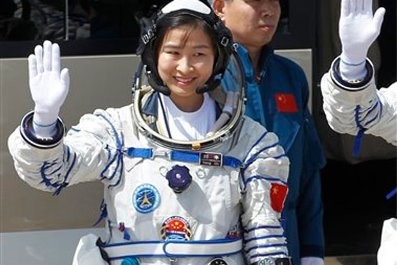China and the United States should team up on space travel for the sake of discovery, according to an analyst of Chinese politics and economics.
Chris Dalby, a Mexico-based analyst wrote in the Global Times that American dominance of space is facing serious competition as China's space goals are now beginning to look similar to NASA's.
According to the article, China is no longer satisfied with sending up satellites or manned Shenzhou missions, as it is now planning to set up a permanent space station by 2020, with manned missions to the Moon and Mars.
But with a slowing economy and 10 percent growth a year in China's space program, the country needs to make a profit from it, Dalby said.
He added that the country has several ways to do it since, now, it allows foreign satellites to piggy back off its rockets, space tourism is now being discussed, and China may even take the lead in asteroid mining in the long-term.
According to Dalby, the value of China's space venture should be seen not on its own cost but as part of a larger order, unlike NASA, which had its shuttles grounded and budget restricted for years. In addition, China's space budget has grown steadily as with its own GDP.
By comparison, only $2 billion a year is spent by China on its space program, while NASA spends $18 billion a year. China's $2 billion budget is spent on supporting numerous pillars.
The landing of Jade Rabbit rover on the Moon in 2013 showed China's focus on our satellite, Dalby said. The construction of the Tiangong 2 space lab, which is now set to launch in 2016, will give China a permanent foothold in space. The lab will be completed around 2022, when the International Space Station will be retired.
The report said that although space travel gained unmatched public enthusiasm in the U.S., NASA's budget was reduced after the USSR collapsed and the U.S.'s interest in space exploration waned. In the case of China, Dalby said, the country is unlikely to have similar problems.
Dalby added that the joint exploration of space has obvious tangible benefits, and seeing people, whether Chinese or American, walk on the Moon will work toward this tangible purpose.
Dalby added that although Russia and the U.S. have worked together on the International Space Station (ISS), China has not been invited to take part, which he said has been a wasted opportunity. There are treaties to prevent the militarization or colonization of outer space and the best way to enforce them is to ensure that all space players will work toward a common goal.
He said that an international cooperation should bring together the U.S. and Europe with emerging players such as China and India, where the space travel expenses will be shared by all, including the costs of manpower, equipment and payloads.






















